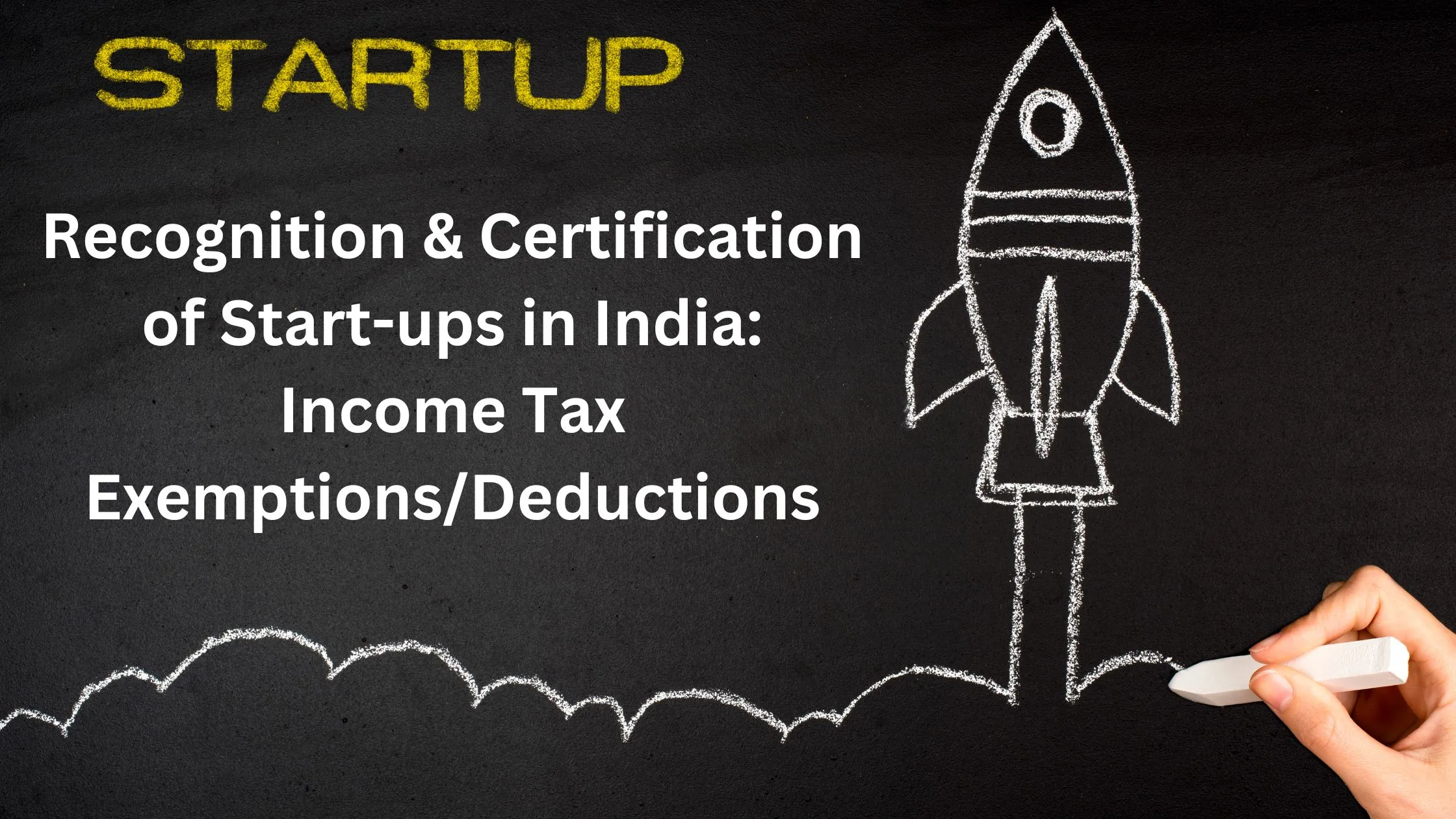


Those start-ups that fulfil the undermentioned definition, as prescribed under G.S.R. notification 127 (E) by Department for Promotion of Industry and Internal Trade (DPIIT) vide Notification dated 19.02.2019, are eligible to apply for recognition by making an online application with the necessary documents. The Condition are Following:
An entity formed by splitting up or reconstruction of an existing business shall not be considered a “Start-up”.
An entity shall cease to be a Startup on completion of either 10 years from the date of its incorporation/ registration or if its turnover for any previous year exceeds INR 100 crores.
Private limited company or limited liability partnership, (firms are excluded) which are recognised by DPIIT and have been incorporated after 1st April, 2016 (but before 01st April 2025), may, for obtain a certificate for the purpose of deduction under section 80-IAC of the Act. They can make an application along with documents specified in the DPIIT Portal. Post getting certification for Tax exemption, the Start-up can avail 100% deduction in respect of profit and gains derived from Startup up business for any 3 consecutive financial years out of its first ten years since incorporation.
Section 56(2)(viib) of the Income Tax Act provides that where a closely-held company issues shares to a person, whether resident or non-resident at a value higher than the “fair market value” of such shares, then the excess of the issue price over the fair market value will be taxed as the income of the issuer company u/s 56(2)(viib) of the Act. Rule 11UA of the Income-tax Rules provides the formula for the computation of the FMV. A recognised Startup shall be eligible for exemption under clause 56 (2) (viib), provided the aggregate amount of paid up share capital and share premium of the startup after issue or proposed issue of shares, does not exceed, twenty five crore rupees and the Recognized Startup has not made investment in certain restricted assets. To claim this, benefit an eligible startup shall file a duly signed declaration to DPIIT that it fulfils the conditions mentioned.
Also Read: New Angel Tax Norms Notified: What Has Changed for Investors and Startups?
Section 192(1C) of the Income-tax Act allows eligible start-ups, as defined under Section 80-IAC, to defer the deduction of TDS on ESOP for their employees as per conditions prescribed in that Section.
For eligible startups recognized under section 80-IAC of the Income Tax Act, even if the 51% voting power criteria is not met due to a change in shareholding as prescribed in Section 79 of the Income Tax Act, the startup can still carry forward losses from prior years and set them off against its current year's income. This is allowed if all the shareholders who held shares with voting power on the last day of the year(s) in which the losses were incurred continue to hold those shares on the last day of the current financial year.
Further, an eligible startup can carry forward and set off losses for a period of 10 years beginning from the year in which the company is incorporated.
The DPIIT recognition and the associated income tax benefits aim to provide a conducive environment for startups in India, fostering innovation, attracting investments, and promoting entrepreneurship. However, it is crucial for startups to thoroughly understand and comply with the prescribed conditions and criteria to ensure eligibility and seamless availing of these benefits.
In case you need any assistance in relation to Startups in India, feel free to contact the ASC Group
























































Leave a Reply
Your email address will not be published. Required fields are marked *